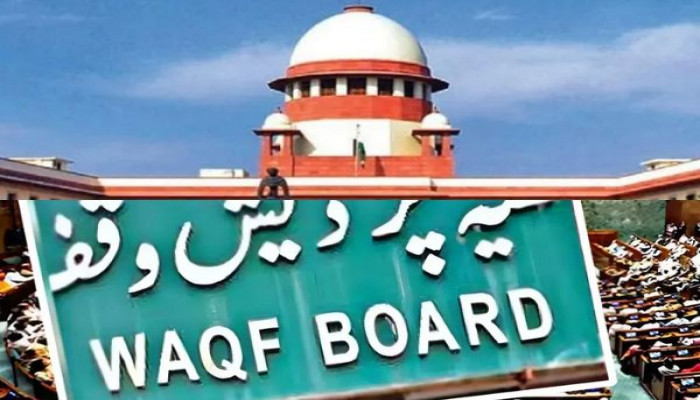Supreme Court’s interim ruling on Waqf Act draws strong reactions
- In Reports
- 05:58 PM, Sep 15, 2025
- Myind Staff
The Supreme Court’s interim order on the Waqf (Amendment) Act, 2025, on Monday drew sharp reactions from political leaders and Muslim organisations, many of whom welcomed the partial relief but insisted that the demand remains for the law to be struck down in full.
AIMIM president Asaduddin Owaisi called the ruling “a positive step” but said it was not enough. “The five-year condition and the ban on the arbitrary power of the collector brought relief to the Muslim community. But the appointment of non-Muslim members is still a matter of concern. Our fight will continue, as this law violates religious freedom,” he said.
The All India Muslim Personal Law Board, a petitioner in the case, also described the order as significant. Spokesperson Syed Qasim Rasool Ilyas said, “We had hoped that the court would stay the controversial provisions, and that is what happened. This is a relief, but our fight will continue. Waqf is Allah’s property, interference in it is not tolerated.” From Lucknow, AIMPLB member Maulana Khalid Rasheed Firangi Mahali termed the decision “substantial” but underlined that the call for a stay on the entire Act continues.
Congress MP Imran Pratapgarhi said, “Thank you Supreme Court for the interim relief. The court raised almost all the issues that were in our petition. But limiting the number of non-Muslim members did not solve the entire problem. Our fight will continue. This law is a violation of constitutional rights.”
Jamiat Ulema-e-Hind president Maulana Mahmood Madani said the order addressed concerns about executive overreach but did not end their opposition. “The court has protected the waqf properties and prevented the executive from taking a judicial role. But we are not satisfied. The provision of non-Muslim members is interference in Muslim affairs. Our fight will continue in the Supreme Court so that the sanctity of the waqf is maintained.”
AAP MLA Amanatullah Khan wrote that he was “thankful to the Supreme Court, judges and advocates who rose above religion and protected the country,” adding that the Act “was an attack on the rights of Muslims” and that the legal struggle would continue. All India Muslim Jamaat president Maulana Shahabuddin Razvi Barelvi said the ruling would help recover illegally occupied waqf properties, which could then be used for schools, colleges, hospitals and other welfare purposes.
The bench of Chief Justice BR Gavai and Justice Augustine George Masih stayed the clause requiring a person to be a practising Muslim for at least five years in order to create a waqf, pointing to the absence of a system for verification. It also stopped provisions that gave Collectors powers to decide whether waqf land overlapped with government land and to change revenue records, saying that executive officers could not be given judicial roles. The Court also ruled that State Waqf Boards can have no more than three non-Muslim members and the Central Waqf Council no more than four.
At the same time, the bench declined to suspend the Act entirely, emphasising the presumption of constitutionality. It left intact the clause that allows a non-Muslim to serve as CEO of a waqf board, with the condition that “as far as possible” a Muslim be appointed. It also upheld the requirement for registering waqfs, including those established by usage, noting that similar provisions had existed in earlier laws.
Parliament passed the Waqf (Amendment) Act in April, and it received presidential assent soon after. The government has defended the law as a move to bring transparency in the management of waqf estates and to prevent misuse. Petitioners have argued that it infringes on religious autonomy and violates constitutional rights.
The matter will now be heard by a larger bench, which will examine the constitutional validity of the contested provisions in detail.







Comments